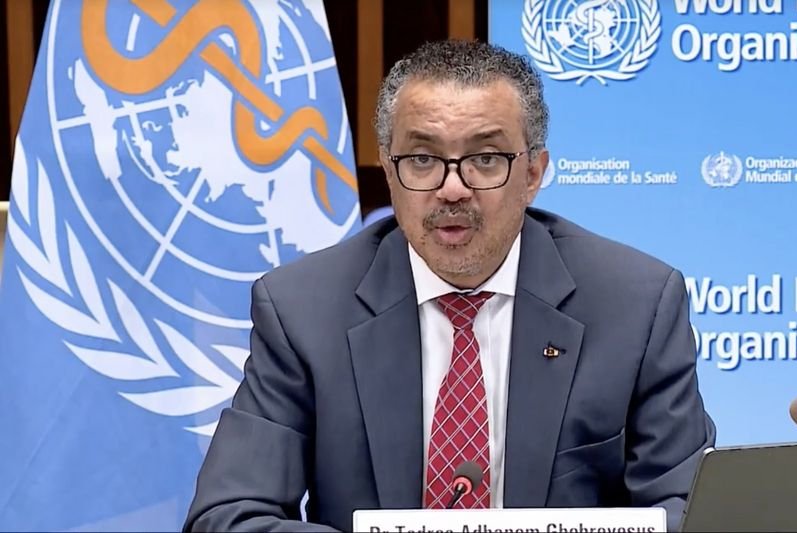A report released Tuesday found that more than 80 people were sexually abused by aid workers, including those from the World Health Organization, during an Ebola outbreak in the Democratic Republic of Congo. WHO Director-General Tedros Adhanom Ghebreyesus offered an apology in response to the report. File Photo by World Health Organization/Twitter
Sept. 28 (UPI) -- More than 80 people in the Democratic Republic of Congo were sexually abused by aid workers responding to an Ebola outbreak, including several from the World Health Organization, according to an independent investigation released Tuesday.
The investigation found that at least 21 of the 83 allegations were lodged against WHO employees as they responded to the Ebola outbreak in the country between 2018 and 2020.
"I'm sorry. I'm sorry for what was done to you by people who were employed by WHO to serve and protect you," WHO Director-General Tedros Adhanom Ghebreyesus said during a press conference.
"What happened to you should never happen to anyone. It is inexcusable," he added. "As the director-general, I take ultimate responsibility for the behavior of the people we employ and for any failings in our systems that allowed this behavior."
Investigators heard testimony from 75 alleged victims including 63 women and 12 men ranging in age from 13 to 43.
Most of the accused abusers were Congolese staffers hired on a temporary basis, but allegations were also made against WHO doctors, consultants and senior staffers, including those from outside the country.
The report included nine allegations of rape and also detailed allegations that sex was often exchanged for promised favors such as jobs, which in many cases never materialized. Women who were employed faced continued sexual harassment by male supervisors and in some cases were fired when they refused sex.
Twenty-nine women and girls became pregnant as a result of their abuse, according to the report. Twenty-two women carried their pregnancies to term while some alleged victims said they were forced to have abortions and others said they had miscarriages.
Investigators placed blame on the WHO for inadequately streaming staffers as well as structural problems within the organization's approach to preventing and investigating sexual abuse. They did not place personal responsibility on Tedros, WHO Africa director Matshidiso Moeti or Michael Ryan, director of the WHO's Health Emergencies Program, stating they were only made aware of the allegations through media reports.
Two senior staffers have been placed on administrative leave and Tedros said the WHO will investigate and take "appropriate disciplinary action" against other perpetrators.
He also pledged the WHO will perform a "wholesale reform of policies and processes to address sexual exploitation and abuse."
"We are acutely conscious that we need to rebuild trust with the people we serve," with our member states, with our partners and with our workforce," Tedros said. "Only then can we succeed in our mission to promote health, keep the world safe and serve the vulnerable."















